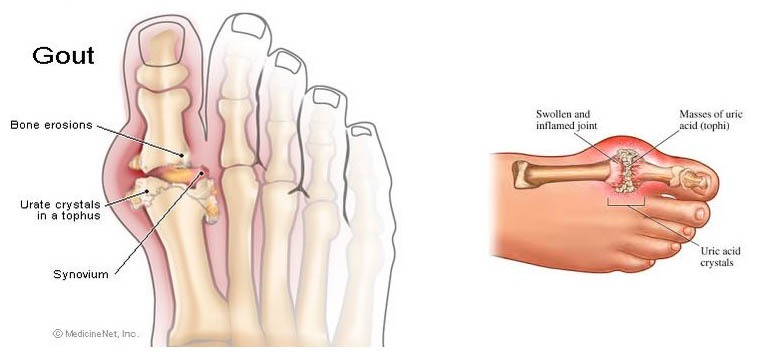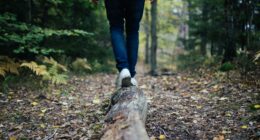 There are several types of altitude sickness like acute mountain sickness, high altitude pulmonary edema (HAPE) and high – altitude cerebral edema (HACE). The most common and least dangerous is acute mountain sickness (AMS).
There are several types of altitude sickness like acute mountain sickness, high altitude pulmonary edema (HAPE) and high – altitude cerebral edema (HACE). The most common and least dangerous is acute mountain sickness (AMS).
Symptoms include headache, shortness of breath, fatigue, dizziness, difficulty sleeping, nausea, vomiting, rapid heartbeat, and impaired thinking. Symptoms occur when the body rises very quickly to a great height, like when you’re taking off in an airplane, or when you climb to such a great height that the air becomes thin and you suffer from lack of oxygen.
There are several ways to treat and prevent the symptoms of altitude sickness using natural, affordable, effective remedies you can prepare at home. Ready to find out what they are? Let’s get started!
Home Remedies for Altitude Sickness:
1. Take Time to Acclimate
Try climbing at a rate of about 500-1,000 feet per day, and when you first arrive at a new height, relax for 12–24 hours before engaging in physically demanding activity. The body will acclimate to lower oxygen levels by adjusting its depth of respiration. It will also release more red blood cells to transport oxygen throughout the body, and it will produce more of the enzyme that helps tissues adsorb oxygen.
2. Keep Your Digestive System Healthy
Lemon juice, ginger, garlic, and honey are all naturally antibacterial. They fight the germs that cause colds and other illnesses, and they support proper digestive function. Drink lemon-ginger tea with honey and garlic 2-3 times daily for several days before flying or climbing. This will help prevent nausea, upset stomach, and vomiting.
3. Easily Digestible Foods
Eat foods that are easy for the body to digest before and while flying or climbing. Avoid excess fat, grease, and salt. The harder your body has to work to digest the food you eat, the less energy it has to spend on physical exertion and acclimating to new heights.
4. Ginger
Eating ginger before climbing or flying tends to prevent altitude sickness, but it can also be taken to relieve the symptoms if they occur. Whenever you feel nauseous, chew a piece of fresh ginger root to calm your stomach. Or mix 20 drops of ginger juice (liquid) in 1/2 cup of water and drink.
5. Ginkgo Biloba
Ginkgo biloba leaves contain bilobalide, ginkgolides, and flavanols that relieve the symptoms of altitude sickness. Take ginkgo biloba supplement 24 hours before flying or climbing. It has some side effects like dizziness, restlessness, breathing problems, allergic skin reaction. It is good to use certified ginkgo supplement which is free from ginkgolic acid. Women who are pregnant or breast feeding should consult a doctor before using this method.
6. Be Prepared
Whether you are flying or climbing, it is important to plan out your route in detail so that you and the other members of your party can be prepared. Have a first aid kit ready, make sure you have an exit strategy. Be sure that the schedule and terrain are within the abilities of everyone in your group.
7. Mental and Physical Fitness
A person deals with the symptoms of altitude sickness better when he or she is both physically and mentally fit. Educate yourself on the physical effects of high altitudes so that when they occur, you are mentally prepared to deal with them. Visit a doctor familiar with the demands of altitude travel. Address any acute medical issues like sinus infection, bronchitis, chest pain, heart and lung diseases, musculoskeletal conditions, and sleep disorders before going for the trip and take medications that are essential for the trip.
8. Hydration
Before flying or climbing, avoid caffeine, alcohol, smoking, and sedatives which affects the blood pressure levels and causes dehydration. Make sure you drink 2-3 liters of water a day to stay hydrated.
9. Medications
Ask a doctor about medications that prevent altitude sickness. Acetazolamide and dexamethasone neutralize the effects of low air pressure; nifedipine improves the flow of oxygen by decreasing pressure on the pulmonary arteries; and frusemide prevents fluid from collecting in the lungs. Take plenty of ibuprofen or NSAID’s or acetaminophen on your trip to fend off headaches and body aches. These medications tend to reduce the symptoms of altitude sickness by about 75%.
10. Sleep
Lack of sleep leads to fatigue, which contributes to altitude sickness. Before and during your trip, make sure to get 8 hours of sleep a night.
11. Get Educated
Before flying or climbing, talk with a doctor about altitude sickness and its symptoms, and ask what you can do to prevent and cope with them.
Other Tips for Treating and Preventing Altitude Sickness:
- Sometimes it’s difficult to recognize the symptoms of altitude sickness in yourself. Travel in groups so people can watch out for one another.
- Healthy individuals do not usually experience altitude sickness below 8000 feet.
- If you begin to experience nausea, dizziness, or other symptoms of altitude sickness, stop climbing.
- For major ascensions, limit yourself to 1000 feet per day in order to allow your body time to acclimate.
- Certain medications for altitude sickness cause side effects, including numbness, tingling, ringing in the ears, disruption of sleep, euphoria, and blood sugar fluctuations.
Have you tried any of these methods for treating and preventing altitude sickness? Do you know of any others we haven’t mentioned? Share your experience with us










1 comment
Hi I am visiting my family member in Colorado and feeling the pressure at times difficulty breathing what is more effective to relief the sickness of altitude?